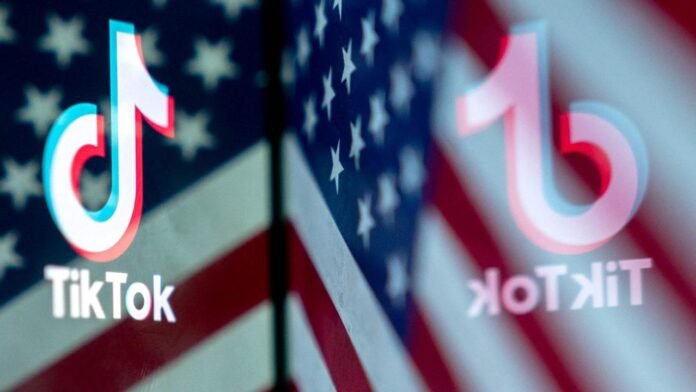The US House of Representatives achieved a rare moment of overwhelming unity on Wednesday as it passed a bill that could potentially force TikTok, the popular social media platform, to sever ties with its Chinese owner or face a ban from operating in the United States. The bill, which received bipartisan support, signifies a significant step in addressing concerns regarding national security and data privacy associated with Chinese-owned tech companies.
The legislation passed by the House requires TikTok’s parent company, ByteDance, to divest its ownership of the app within a year or risk being barred from operating within the US. The move comes amid growing apprehensions over the Chinese government’s access to user data collected by TikTok and other Chinese-owned platforms, fueling fears of potential surveillance and espionage activities.
The bill’s passage marks a rare display of bipartisan cooperation in an otherwise politically divided Washington. Lawmakers from both sides of the aisle united in their efforts to address the perceived threats posed by Chinese tech companies, underscoring the bipartisan consensus on national security issues.
Supporters of the bill argue that it is imperative to safeguard American citizens’ data and protect national security interests from foreign influence. They contend that allowing Chinese-owned companies like TikTok to operate freely in the US poses significant risks, particularly given the Chinese government’s expansive surveillance apparatus and history of cyber espionage.
Opponents of the legislation, however, have voiced concerns about the potential economic repercussions of banning TikTok. They argue that such a move could disrupt the app’s millions of users and impact the livelihoods of content creators and businesses who rely on the platform for marketing and outreach.
Despite these concerns, the overwhelming support for the bill in the House reflects a broader consensus on the need to address the national security implications of Chinese-owned tech companies. Lawmakers have expressed a willingness to prioritize national security concerns over potential economic considerations, signaling a shift in US policy towards greater scrutiny of foreign-owned platforms operating within its borders.
The passage of the bill also underscores the growing bipartisan consensus on the need for stricter regulations and oversight of tech companies, particularly those with ties to adversarial foreign governments. Lawmakers from both parties have become increasingly vocal in their calls for greater scrutiny of Chinese-owned firms operating in the US, citing concerns about data privacy, intellectual property theft, and national security risks.
In recent years, TikTok has faced intense scrutiny from US lawmakers and regulators over its data collection practices and alleged ties to the Chinese government. The Trump administration had previously sought to ban the app outright, citing national security concerns, but those efforts were thwarted by legal challenges and court rulings.
The Biden administration has also expressed concerns about TikTok’s data privacy practices and its potential to be exploited by foreign adversaries. The passage of the bill by the House reflects a continuation of bipartisan efforts to address these concerns and hold Chinese-owned tech companies accountable for their actions.
While the bill still needs to be approved by the Senate and signed into law by President Biden before it can take effect, its passage in the House represents a significant milestone in the ongoing efforts to regulate and oversee the activities of Chinese-owned tech companies operating in the US.
TikTok, for its part, has repeatedly denied allegations of wrongdoing and insisted that it operates independently of the Chinese government. The company has also taken steps to address concerns about data privacy and security, including establishing data centers in the US and appointing American executives to key leadership positions.
Nevertheless, the passage of the bill by the House sends a clear message to TikTok and other Chinese-owned tech companies that the US government is serious about protecting national security and safeguarding American citizens’ data. As the legislation moves forward in the Senate, the debate over the future of TikTok and its operations in the US is likely to intensify, with lawmakers weighing the competing interests of national security, economic stability, and individual privacy rights.

